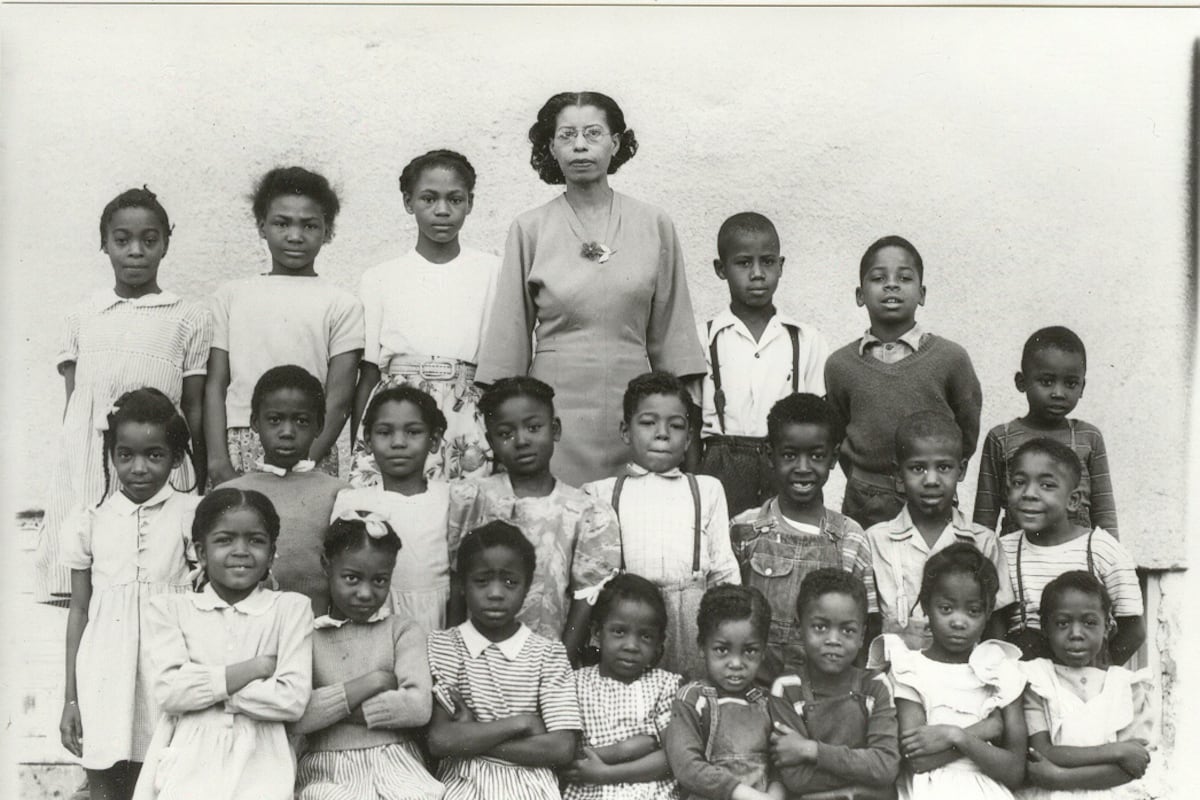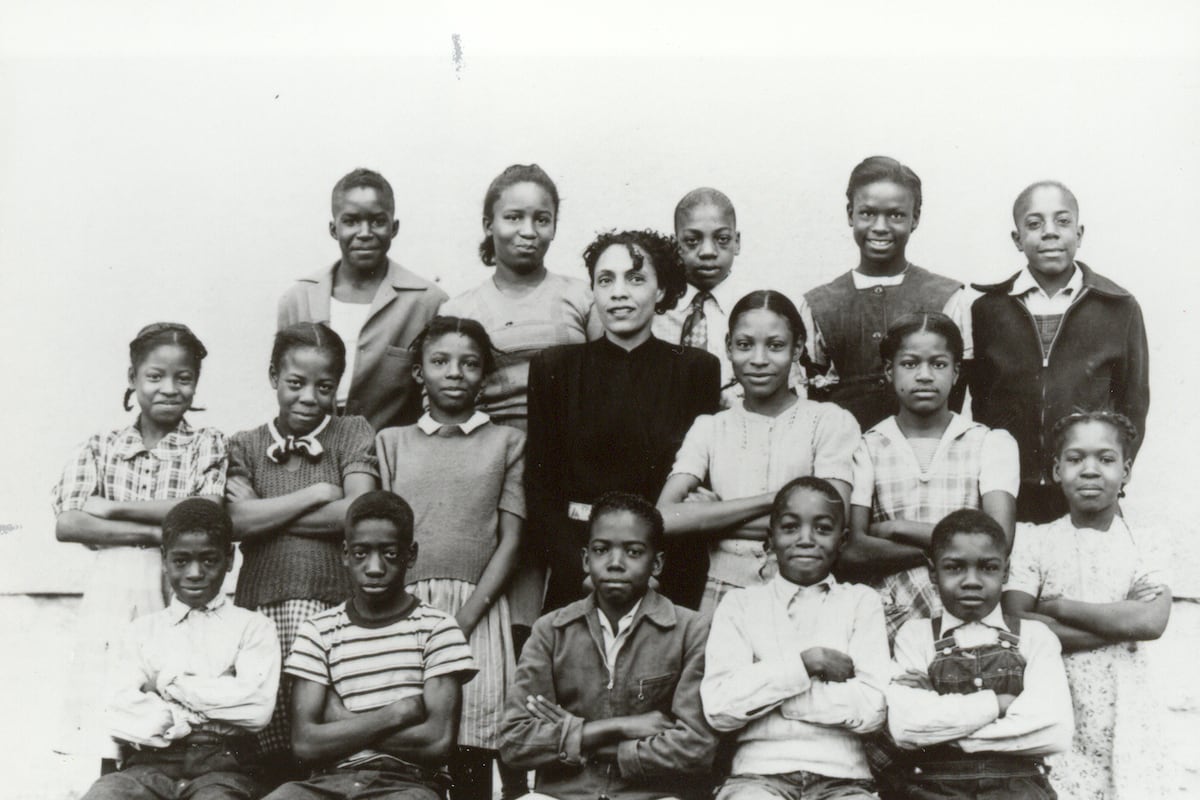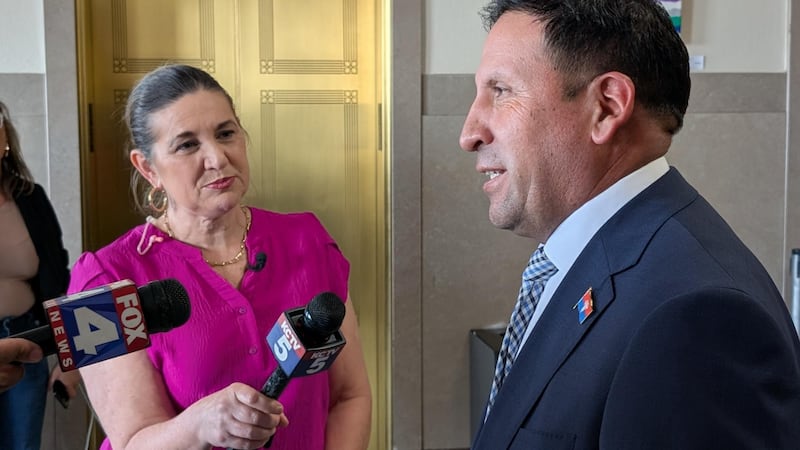‘Significant piece of Black history’: Local school paved way for Brown v. Board
Black students and teachers led the charge for integration in the 1940s when they rejected the unequal conditions of their two-room schoolhouse
MERRIAM, Kan. (KCTV) - It’s a piece of history unknown to many; A small church in what is now Merriam, Kansas, was once a school that had a major impact on the history of the United States.
The Madam C.J. Walker School, now recognized as the Philadelphia Missionary Baptist Church, helped lay the groundwork for the nationally renowned Brown v. Board of Education case that ended segregation in schools.
For more than 70 years, the Walker story was overshadowed—until now, as community members work to revive and preserve its history for future generations.
A footnote in American History
The Walker School was built in 1888 after Johnson County organized School District 90.
Black and white children alike attended the school until 1947. Then, the district built South Park Grade School just two blocks away—but not every student included in the transition.
“They denied the Black kids to go to that school,” said Tony Adams, one of the church’s board members.
The remaining Walker students were forced to find comfort in the two-classroom building.
“We did not have no food to eat. I did not understand, you had to go outside to the bathroom,” said Delores Graves in disgust. She’s one of the last living students of the Walker School.
Adams said, “The whole community was outraged.”
Two parents, Alfonso and Mary Webb, organized a boycott of the school, and teachers moved their classes to their homes and a local church in what was called the “Walker Walkouts.” Esther Brown, a Jewish woman who later served on the Kansas City NAACP’s board of directors, stepped in to help as well.
Finally, in 1948, the Walker families filed a lawsuit against the school district. The case is known as Webb v. School District No. 90.
“We sued all the way to the Kansas Supreme Court and won,” Adams explained. “We were the first community in [Kansas] to legally desegregate.”
Since Merriam’s population was smaller than 15,000, the city was not large enough to make a national impact—unlike Topeka where the now-famous Brown v. Board of Education got its start.


In 1954, six years after Merriam won its case, the U.S. Supreme Court ruled unanimously that racial segregation in public schools was unconstitutional. It was a defining moment that came to life with what the Walker families had already established, but it didn’t make it to the textbooks.
“If it hadn’t been for us, there would have never been no Topeka,” Adams asserted. “We should be a footnote in any American history book that talks about Brown v. Board.”
Renewed spotlight
Adams is working to preserve what he considers the “Most significant piece of Black history that nobody knows about.”
The plan is to rebuild the school-turned-church into a historical representation of how it used to be, outfitted with a museum and everything. The museum, which will serve as the lobby of the church, will house historic exhibits about the school and the time period.
“The school will be built back to its original dimensions,” he explained. “It will resemble the 1905 version.”
The church hopes to complete the renovations by the beginning of 2026, ahead of the World Cup in Kansas City. Adams says it will cost $4.4 million.
While the church works to bring the project to life, MidAmerica Nazarene University is documenting the entire process and then some.
“We have about five students involved currently conducting research,” said Darin Tuck, an associate professor of history.
The university received a $10,000 grant from Humanities Kansas to dig into the history and conduct interviews that will live in the museum.
“One of the reasons why we want to build this museum is we want kids in our local community to visit here and say, ‘Look at people in the past, right here that lived right next to me, they can change the world. I can be part of that change, as well,’” Tuck explained.
One of the change-makers is Delores Graves. She now looks back on her years at Walker School and encourages students today to not take their education for granted.
“Be involved in what you are doing. Every day you miss, you never gain. Try not to miss, try to retain everything as much as you can. It is you who has to carry it on,” she said.
Click here to read more KCTV5 News Special Reports
Copyright 2025 KCTV. All rights reserved.








